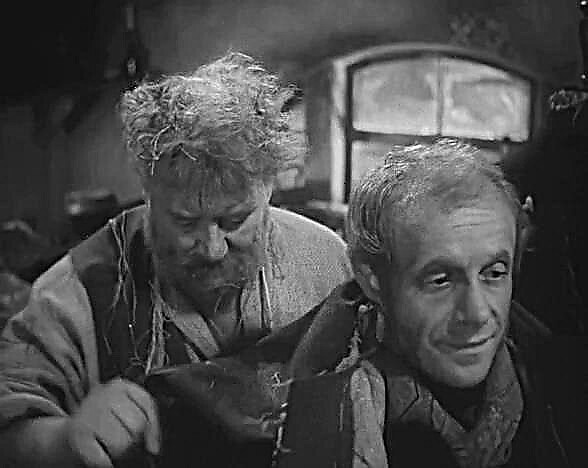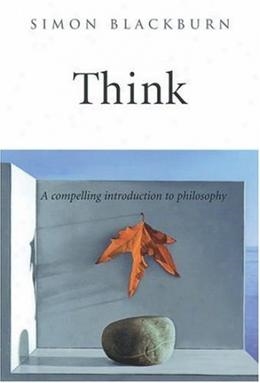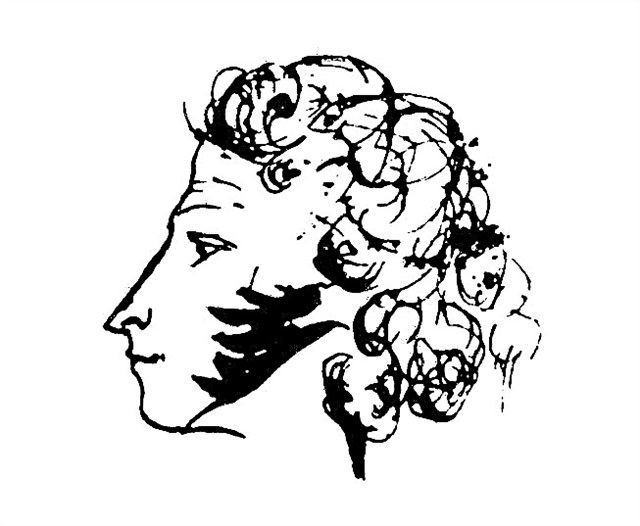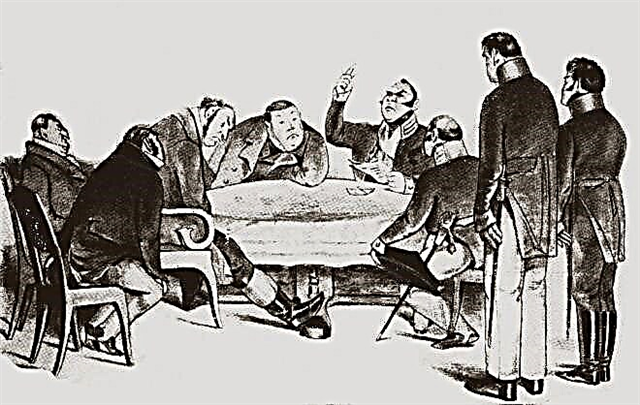Our stereotyped thinking can be used against us
In the modern world, it is impossible to think about the details of each decision, and we use psychological labels, stereotypes, and they regularly serve us.
The behavior of animals may seem ridiculously simple to us.
Example: Sometimes a brood turkey refuses or even attacks young turkeys if the chicks do not make a characteristic sound. And the stuffed ferret, the sworn enemy of a turkey who makes these sounds, a mother hen will take for his own chick. Sound is a shortcut that allows a brood hen to quickly identify its chicks.
Advertisers, sellers, and scammers (pliability professionals) can trick us into applying our stereotypes against our own interests; subordinate to your requirements, for the good of your interests. The popular stereotype is “price means quality”: people usually think that expensive products are of higher quality. Often this stereotype is true, but the seller can use it against us.
Example. Gift shops sell unpopular gems by raising, not lowering, their prices.
It is necessary to defend against manipulators, imposing erroneous stereotypes.
People have an urgent need for mutual exchange
The rule of "mutual exchange" - we feel the obligation to respond to other people with the same that they gave us. This trend is the foundation of any society. She allowed our ancestors to share resources based on mutual assistance. We feel a psychological strain, not responding to someone’s favor.
As a society, we despise those who do not reciprocate. We call them beggars or ungrateful personalities and are afraid to be in their place. Experiments have shown: people are so eager to get rid of the debt burden that they will give back even more than they received.
Example. The researcher bought the subjects cheap Coca-Cola, showing them an unsolicited courtesy. Then he asked them to buy lottery tickets from him. Most of the subjects reciprocated, buying tickets at 50 cents apiece. When the researcher did not buy Coca-Cola, the number of tickets purchased was halved. He made people feel a sense of duty by buying them Coca-Cola, and appointed for them his own method of mutual exchange.
Members of Krishna society successfully used this tactic when they presented flowers to passers-by on the street. Even annoyed by this, people often donated to satisfy their need to reciprocate the flower.
You cannot reject all courtesies in order to repulse attempts to use the rule of mutual exchange. Instead, identify the fundamental basis of the sentences: whether they are genuine courtesy or offensive tactics of manipulation. And only then reciprocate accordingly.
Failure-then-retreat is an insidious tactic leading to mutual concessions and the operation of the principle of contrast
We feel obligated to respond to concessions in the negotiations.
Example. A scout first asks you to buy a lottery ticket for five dollars, but then backs off and asks to buy only a chocolate bar for one dollar. Most likely, you will buy a chocolate bar to respond to the “concession” to the scout, even if you do not need chocolate. The Boy Scout has adopted a strategy called “denial-then-retreat” - a powerful tool in achieving mutual concession.
The principle of contrast: two objects are presented to us one by one, the difference between the second and the first is enhanced (the chocolate bar seems disproportionately cheap after the lottery ticket).
Example. The abandonment-then-retreat strategy led to the collapse of presidential rule. In 1972, the re-election of President Richard Nixon seemed inevitable, but J. Gordon Liddy managed to convince the Presidential Election Committee to give him $ 250,000 to rob the offices of the National Democratic Party Committee. First, he proposed a one-million-dollar scheme involving abduction, theft, and “first-class girls.” After that, the $ 250,000 scheme, which included only burglary, already seemed not so bad. The scandal that arose after the capture of the robbers forced Nixon to resign.
When opportunities are limited, we crave them even more
Shortage: Opportunities look more valuable if their availability is limited. This is due to the fact that people hate to miss opportunities. This is well known to advertisers.
The study showed that when the subjects learned about the limited time for selling meat, they bought three times more than if there was no time limit. This effect was enhanced when people were told that only a few knew about the sale. The message made buyers buy six times more meat, unlike customers who did not know about the action!
Conditions for exposure to deficiency:
- We wish for something more if the availability of this has been significantly reduced recently. Revolutions occur when living conditions deteriorate sharply, and not when they are stably poor. Sudden deterioration increases people's desire for something better.
- Competition. At auctions, in relationships, or in real estate transactions, the idea of losing something or losing your opponent turns us from an hesitant person to an overly zealous one. Real estate agents remind us that several other applicants are also interested in the house / apartment being inspected, whether or not this is true.
Think about whether you want this product because of its usefulness (because of taste or function) or simply because of an unreasonable desire to possess it.
Prohibited items and information are considered more welcome.
People want what they cannot get. When Dade County in Florida stated that adding phosphate to laundry detergents was illegal, residents not only started smuggling and stockpiling the product, but they began to consider phosphate-based detergents to be better than before. Parents observe such rebellious behavior in their children: any toy will become much more attractive if the child is strictly forbidden to play with it.
Censorship - Prohibited information is considered more valuable than freely available. Studies have shown: when college students were told about the ban on the report “Against joint dormitories,” they became more sympathetic to him without even hearing a word!
In courtrooms: jurors may be affected by “prohibited” information. When they know that the insurance company will pay the bill, they award the plaintiffs large damages. And they award even higher losses if the judge directly told them to ignore the fact that the defendant has insurance. The “forbidden” information seems to be more significant for them and makes them react too violently.
We are fixated on being consistent in our words and deeds
The desire to answer for your words even surpasses the concern for personal safety. When people on the beach witnessed a staged theft of radio from a nearby towel, only 20% of vacationers reacted to it. But if the owner of the towel first asked people to look after his things, 95% of them became real warriors, starting in pursuit of the thief and forcefully taking away the radio from him.
As soon as we promise something in words or actions, we want to be consistent. A publicly accepted commitment is the most powerful driving force.
Example. Jurors in court will not change their minds after they openly declare it.
We will change the image of our own self to match our previous actions.
Example. After the war in Korea, Chinese interrogation officers forced American prisoners of war to cooperate, asking them for small concessions: to write and sign harmless statements like "America is not perfect." When these statements were read in the prison camp, compatriots inmates called them "collaborators." The prisoners also began to consider themselves collaborators, becoming more useful for the Chinese. They adjusted the image of their own self in order to fit their deed. Commitment in writing is an important element in this process: there was something inevitably powerful in written and signed words.
The door-to-door method has an advantage - even small obligations affect our image of our own self. It is very popular among sellers who make large deals that force customers to make a small commitment that changes their image.
The choice to fight for something forms an internal change
When a new member is accepted into the group, initiation rites are usually associated with pain and humiliation. Attempts to suppress such cruel practice always meet with stubborn resistance. These groups know that if people pass the test in order to achieve something, they value it more. The required effort makes the participants take the group seriously.
Groups such as college fraternities resist efforts to turn their initiations into a form of community service. They want candidates to make an internal choice to participate in a humiliating initiation ceremony. This does not give them a chance to use the excuse “it was for the good of the community”, which allows externally justifying their behavior. Such an internal choice is more likely to produce an indelible internal change than a choice due to external pressure.
Compliance professionals bring about an internal change in us with the trick of lowering prices.
Example. A car dealer can offer such a cheap car that we immediately decide to buy it. The dealer knows well that during the test drive, we ourselves will find several other reasons for buying a car, for example, “good mileage”, “nice color”
When in doubt, we need social proof
The principle of social proof - we often decide what to do, looking at what others are doing. It is used to manipulate us.
Example. Television shows use offscreen laughter to make jokes seem funnier. The church sets up money-collection boxes already with a few banknotes at the bottom to give the impression that everyone makes a donation.
Social evidence is especially strong when uncertainty reigns.
Example. A young woman named Kitty Genovese was stabbed to death near her home in New York in 1964. The shocking moment was that the attack lasted more than half an hour, 38 people watched him, listening to screams, but no one intervened and did not even bother to call the police.
This witness inaction was due to two factors:
- With the participation of many people, everyone's sense of personal responsibility is diminished.
- The urban environment contains many uncertainties: an abundance of unknown things and strangers. When people are not sure, they look at what others are doing.
In the case of Genovese, people tried to quietly peek out the windows, which made it clear to others that inaction was the right behavior.
Caught in an emergency in the middle of the crowd, it is necessary to single out one person and send a clear request for help specifically to him. Thus, the person you have chosen will not feel the need to seek guidance from others and will help.
Observing people like us can influence our decisions.
We often imitate others in our preferences. This is enhanced when the subject of observation is like us. Teenagers are highly dependent on the opinions of their peers in choosing clothes. Marketers often use advertisements with polls of "ordinary people on the street" who approve of the product. We tend to think that these people are similar to ourselves, and their approval is an indicator of good product quality.
The tendency to imitate others can also lead to gloomy statistics: after suicide is widely publicized in the media, the number of people dying in accidents increases dramatically over the next week. After reading the story of suicide, some people are determined to imitate the victim. For a number of reasons, some decide to give their death a random character or decide to do it while driving a car, in an airplane. There is an increase in unexplained accidents. These are not people who are suicidal: research has proven that every suicidal story from the front page of a newspaper actually kills 58 people who would otherwise live on.
This is the Werther effect, named after Goethe's novel, which in the 18th century caused a wave of suicides throughout Europe, in imitation of the protagonist. The effect is enhanced if the person whose suicide has been published is similar to the reader of the article. When young people read about the suicide of another teenager, they began to dump in cars from bridges and crash into fences. And older people reacted to suicidal news from other older people.
We are more willing to fulfill the requirements of those we like, and some people find it easy to enjoy.
We are more loyal to the people we like. Compliance professionals know what causes us to love a person:
- Physical attractiveness. We tend to consider people who are pleasant to us smart, kind and honest. We also tend to vote for more attractive candidates in political elections.
- Flattery. We like people who are connected with us, at least indirectly. Sellers often praise us and indicate some kind of connection with us: "What a beautiful tie, blue is also my favorite color."
- Interaction for any general purpose. The “good cop / bad cop” interrogation method uses this factor: after the suspect verbally abuses the “bad cop”, an understanding of the “good cop” protects the suspect like a friend and close person, which contributes to the confession.
- The attractiveness of thingsthat we associate with people. The weather forecaster is associated with inclement weather. For accurate prediction of bad weather, he could be threatened with murder. If we hear about something during a delicious dinner, we tend to associate this issue with the positive emotions of the dish.
Ask yourself: did you really fall in love with this person or did it happen unexpectedly and abruptly, in a short time. Do not give in to manipulation.
People easily obey power and its symbols
From birth, we are trained to obey the authorities. We do this without even thinking. Stanley Milgram discovered that activists could put others in mortal danger simply because an authoritative person told them to.
Example. The nurse who treated the patient’s ear received a written instruction from the doctor: “Place the medicine in the ear” (place in R ear) and began to drip the medicine into the patient’s anus.The nurse understood R ear (R [from Right] - right, ear - ear) as Rear (rough back). Neither she nor the patient wondered how this could help his ear.
Power nullifies independent thinking.
If there is no reliable evidence of another person’s authority, we use simple symbols to evaluate it. Titles are very powerful tools. Faced with someone who looks like a professor, we automatically become more respectful, share his opinion and even tend to see him physically higher!
Clothing and attributes are powerful symbols of power.
Example. In the Milgram experiment, an authoritative figure had a white coat and a folder with a clip that convinced participants to torture their subjects. Fraudsters, if necessary, put on their uniforms, suits, and even the priest’s robe.
Faced with an authoritative person, ask yourself questions:
- Is this person really authority or is he simply impersonating him?
- How honest can he be in this situation? Does he care about his own interests?
The most important thing
Are we as easy to manipulate as animals?
- Our stereotyped thinking can be used against us.
- What mechanisms within us can be easily manipulated?
- People are in urgent need of mutual exchange.
- Failure-then-retreat is an insidious tactic leading to mutual concessions and the operation of the principle of contrast.
- When opportunities are limited, we crave them even more.
- Prohibited items and information are considered more welcome.
- We are fixated on being consistent in our words and deeds.
- The choice to fight for something forms an internal change.
- When in doubt, we need social proof.
What kind of people do we tend to obey?
- Observing people like us can make a big difference in our decisions.
- We are more willing to fulfill the requirements of those who we like, and some people easily like us.
- People easily obey not only power, but also its symbols.












